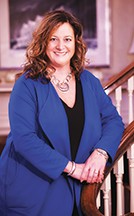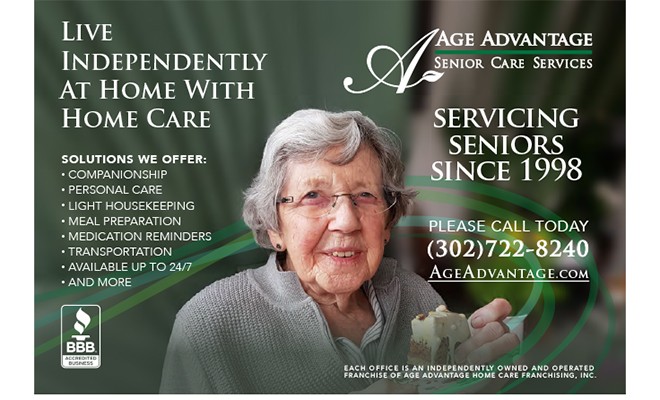There Is Help & Hope When You Lose The Love Of Your Life
 By Kristin Stetler Donovan, Owner, Age Advantage of Newark
By Kristin Stetler Donovan, Owner, Age Advantage of Newark
I come from a family where my parents were married more than 50 years. That kind of longevity is not as common as it used to be with rising divorce rates, so those from my parents’ generation, who believed you were married for life, are dwindling. But whether you are committed to staying married through eternity or if you are only married for a short time, your spouse becomes such a huge part of your world. The two of you share the responsibility of running the household, sharing similar schedules and commitments, caring for each other’s mental and emotional needs, and, in some cases, finding the necessity to care for each other’s physical needs. As we age we may rely on our spouse as a caregiver, as if we weren’t already dependent on one another enough, and the role of a spouse as caregiver increases that dependency. When a spouse passes away, either abruptly or from a prolonged illness, it turns our world upside down. Psychological and emotional losses change older Americans’ lives. How they navigate a cascade of challenges — particularly social isolation, death of a spouse, and depression — can determine the course of their final years.
Seniors tend to withdraw when they suffer the loss of a spouse, often running the risk of becoming depressed, lonely and isolated. These risks increase with other factors such as poor health or disabilities, living alone, reduced social networks, transportation issues, place of residence, and even poverty and low self-esteem. While these factors are known to contribute to social isolation and loneliness, there is no sure way to determine a direct association between the variables. The struggles associated with aging often intertwine. Illness, for example, compromises independence and mobility. What begins as arthritis for someone living in a walk-up apartment can lead to social isolation, which can cause depression. Depressed people may grow withdrawn, isolating themselves further. Meanwhile, to make matters worse, many older adults who lose a spouse, partner, or friends, have lost their sources of companionship, stability and support.
As family members, we often become responsible for the surviving parent when their marital partner passes. Some seniors perceive themselves to be burdens and resist the help their children offer; or they may become completely dependent on their children due to the loss of their lifeline, their spouse. As a parent’s mental and physical needs develop it becomes increasingly more difficult for children and family members to meet all of their growing needs. It is critically important for seniors to continue their routines and socialize in order to avoid depression, deteriorated immune system, and other health issues. There comes a time when children who have lost a parent, while grieving themselves, have to figure out what the “next step” is, but they don’t know where to turn for help. Most people want to live in the comfort of their own homes. This becomes increasingly difficult without their spouse and the limited ability of family members to fill the void of their deceased spouse. In-home senior care services can play such a crucial and integral role in someone maintaining their independence at home. In-home senior care providers, such as Age Advantage, can provide assistance around the home, with transportation, and simply with providing needed companionship. Caregivers can provide a helping hand, an open ear, and a caring heart in a time when people need it the most.
Regardless of how much a caregiver does they will never replace a spouse, but they will surely ease the pain and loneliness that accompanies losing one’s soul mate. If you or anyone you know can benefit from a helping hand, someone to talk to, or any type of support to keep them independently living at home, please call 302-722-8240 and a member of the Age Advantage team will be happy to assist you.





